People and Organisations

We are a diverse group of academics who research many aspects of work and organisations.
These can be broadly understood as centring on organisation studies and organisational psychology; and management and organisational learning, processes, change and innovation. Members of the department also have an interest in academic practices like research ethics and the politics of knowledge production.
Research into Employment and Equitable Futures
We seek to explore and shape the future direction of equitable futures, work and society with dedicated research into this area. In partnership with The People Space, this academic centre of excellence draws on the Department for People and Organisations' scholarly expertise on themes of identity, leadership, gender, bodies, ethics, power and learning to inform policy makers, organisational leaders, social practitioners and people from across contexts to work together to co-create innovative solutions for meeting these coming opportunities and challenges.
Gendered Organisational Practice
This research cluster takes feminist solidarity as a starting point to create a space where feminists of any gender can share insights and knowledge from academic study and practice. The cluster fosters continuous collaboration and exchange between practitioners and academics and provides a hub for those interested in developing equality through their research, but also for practitioners wanting to make their organisations more egalitarian and fairer places. Current areas of expertise include gendered working bodies, feminist organising and gender and sexuality.
Research interests
Organisation studies and organisational psychology
- Alternative organisations and organising
- Civil society organisations
- Corporate social responsibility
- Critical approaches to leadership and leadership dilemma
- Critical management studies
- Diversity in organisations
- Emotions in organisations
- Employee branding
- Financialisation and political and ethical responses
- Gender, sexuality, the body in organisations and how bodies are organised
- Human-animal relations in organisations
- Individual and group behaviour in organisational contexts
- The interplay between work and health
- Organisational democratic practice
- Organisational and individual identity, subjectivity, selfhood and the meaning of work
- Organisations, work and social inclusion
- Post-colonial relations in organisations
- Power, politics and organisations
- Professional occupations
- Precarious work
- The production, dissemination and contestation of meaning in organisations
- The psychology of financial behaviour
- Risk, uncertainty, and resilience
- Sociological accounts of work
- Transformations in technological and institutional conditions
Management and organisational learning, processes, change and innovation
- Change management
- Cross-cultural differences and self and group regulation in online learning
-
Collective organising and social learning processes
-
Decision-making under radical uncertainty
-
The development of business and management practices
-
Entrepreneurship
-
Formal and informal learning in organisations
-
Green HRM
-
Higher education management
-
Knowledge management
-
Management Information Systems
-
Managing inter-organisational relations in complex services
-
Management practices
-
Operations management
-
Serious games and the contribution of gamification to organisational learning and innovation
-
Strategic change
-
Supply chain management and behaviour
-
Supply chain analytics and modelling
-
Supply chain performance measurement systems
-
Sustainability and resilience in the supply chain
Academic practices
- Embodiment and affect in research
- The politics of academic knowledge production
- Research ethics
- Research methods
Academic Publications
Full details of our research publications can be found on Open Research Online and via our staff pages.
Teaching
Members of the Department teach across undergraduate, postgraduate and executive education modules in areas such as organisational behaviour, management of learning and change, professional development, human resource management, creativity, leadership, innovation, organisational culture and organisational development. We also run the CIPD accredited MSc in Human Resource Management.
Contact the Department for People and Organisations
For all department-related enquiries, please email us.
For all other enquiries, including student and alumni, please visit our contact us page.
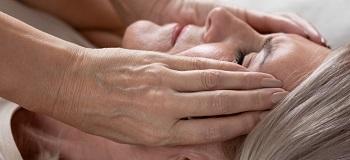
It’s time to talk about menopause in the workplace
Professor Jo Brewis discusses her work to remove workplace taboos around menopause and encourage employers to recognise and support people experiencing this normal but sometimes challenging transition.
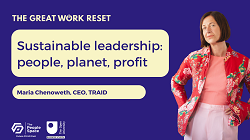
Sustainable Leadership: How to put people at the heart of the green economy
How do you build a business that is positive for people, the planet, society and the economy? Maria Chenoweth, OU MBA alumna and Chief Executive of second-hand clothing charity TRAID, offers her top tips.

Resetting capitalism: How organisations can work for progress, people and planet
Capitalism as we know it is unsustainable. It is financially unstable, bad for the environment and politically unpopular. An increasing number of voices, including some of the world's most powerful leaders, are calling for business and society to align their mission, vision and rewards for the common good. How can organisations step up and play their part in this transformation?

Jo’s on The One Show talking about the menopause
OUBS academic Professor Jo Brewis was a guest on the BBC's primetime television programme, The One Show.

OUBS PhD graduate marks Refugee Week
Recent PhD graduate Marco Distinto explains his research, which challenges the ideological discourses about migration by telling the human stories of migrants and the people who support them.
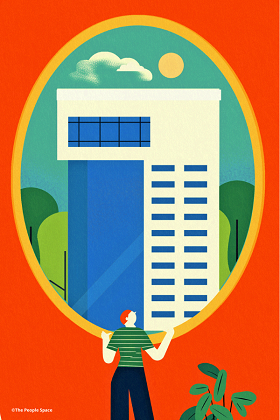
Resetting trust in work
The pandemic cast a spotlight on much-hyped corporate purpose statements. In the glare of scrutiny, when the chips were down, organisations saw an uncomfortable question come to the fore: were they living up to the ideals they espoused? Some clearly weren’t.
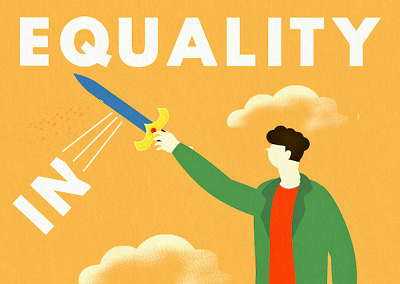
Resetting equality in work
Since the beginning of the first lockdown, what has become painfully, obviously, clear was that while we might all be in the same storm, we are in very different boats – and some have sprung a leak.

International Women's Day
To support International Women’s Day we have put together a number of resources, including events and news articles for women’s rights.
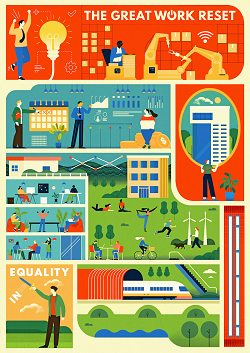
The Great Work Reset
Circumstances are right for meaningful and fundamental change in the world of work. But what will that change look like – and what role will HR play in it? The People Space and The Open University Business School are partnering throughout 2021 to highlight the issues and suggest how HR can help work to become radically better. Siân Harrington and Katie Jacobs report

5 paradoxical tensions facing HR leaders
Research highlights how the pandemic has brought to the fore pre-existing paradoxical tensions within organisations and offers recommendations on navigating these uncertainties.
News

How to design menopause leave policies that really support women in the workplace
More than 15 million women are in employment in the UK right now, which means menopause is undoubtedly a workplace issue. In this article, Jo Brewis, Professor of People and Organisations writes about how to design menopause leave policies that really support women in the workplace.
- How to design menopause leave policies that really support women in the workplace
- Learning different ways to do HR in different organisations and countries
- The rise and fall of Topshop. OU/BBC series lifts the lid on iconic brand’s fall from grace
- Small bakery owners: we want your views!
- Self-employment: what is it, why do it and how has the pandemic affected it?
